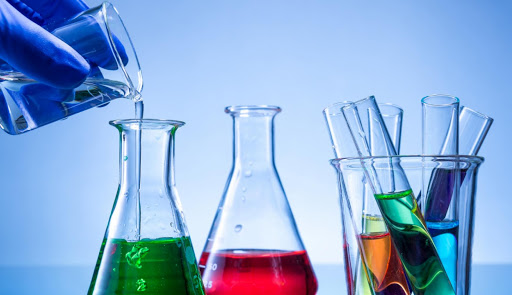CHEMICALS

Chemicals are used during wastewater treatment in an array of processes to expedite disinfection. These chemical processes, which induce chemical reactions, are called chemical unit processes and are used alongside biological and physical cleaning processes to achieve various water standards.
Specialized chemicals such as chlorine, hydrogen peroxide, sodium chlorite, and sodium hypochlorite (bleach) act as agents that disinfect, sanitize, and assist in the purification of wastewater at treatment facilities.
There are several distinct chemical unit processes, including chemical coagulation, chemical precipitation, chemical oxidation, and advanced oxidation, ion exchange, and chemical neutralization and stabilization, which can be applied to wastewater during cleaning.
Reverse osmosis chemicals (RO chemicals) to improve the performance of your reverse osmosis system’s membranes. Reverse osmosis (RO) membrane performance can be negatively impacted by impurities that build up on the membrane surface during operations. Suspended solids, microorganisms and mineral scale can foul membrane elements. These deposits can cause loss in output and/or rejection levels and reduce total system performance.
ETP chemicals used for smooth operations and maintenance of ETP plants
according to pollution control parameter. We offered wide range of Chemicals for various industries like Food, Beverages, Metal Treatment, Oil Field, Construction, Mining , Textile , Pulp and Paper, Sugar, Manufacturing, Dying unit, Hotels and Resorts Waste, Automobile, Pharmaceutical, Processing , Agriculture, etc.
Biochemical products have been widely used for treatment of various types
of wastewater. The treatment processes with the addition of biochemical products are quite attractive because of their simplicity, minimal use of equipment; they are environmentally friendly and are suitable for the removal of organic pollutants.
STP CHEMICALS the sewage treatment plant receives raw domestic sewage
and some industrial effluent which contains many toxic chemicals. The most common is ammonia (NH3), which is usually found in very high concentrations. The levels of toxic substances is significantly increased by the anaerobic conditions (covered later) in the network of pipes transporting the raw sewage to the plant. The plant carries out the necessary treatment process to produce water which is safe for direct discharge into the river or sea.
There are four main stages of treatment in a typical sewage treatment plant, but the design or layout can vary from site to site. These plants are categorised into one of
three types, based on the method of secondary treatment, i.e. Biological Filter, Activated Sludge, and Pasveer Ditch.
Sewage Treatment Chemicals will be used for applications like
- Sludge Settlement
- Color Cutting
- Bacteria Development & so many
